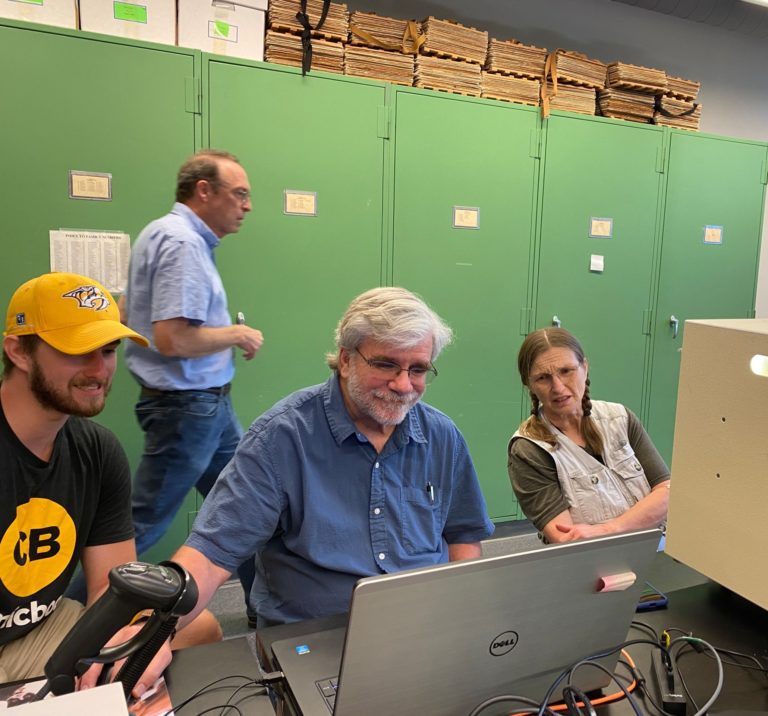By Amanda Cordle, August 2021
Rising Senior Jack O’ Brien is the first intern for the Furman University Natural History Collection (FUNHC). Through this internship, he is working to digitize the data found in the collection as well as to raise awareness of this scientific resource among Furman students, many of whom are unaware that it exists.

Jack O’Brien ’22
The FUNHC is split into three smaller collections—an invertebrate collection, a vertebrate collection, and an herbarium.
Jack is primarily working in the vertebrate collection and the herbarium. With the vertebrates, Jack’s main task is to replace the alcohol preservative in jars containing reptile and amphibian specimens. Through the process of digitizing information, Jack is also focused on preservation in his work in the herbarium.
“The herbarium is like a museum for dried plant specimens,” Dr. Ashley Morris, the Biology professor that created the internship, explains. “To preserve plants, what we do is collect them, press them, mount them on paper, and associate metadata with the collection.”
The data can be anything the individuals who found the plant felt was important, which usually includes the scientific name of the species, the collector’s name, the date it was collected, locality information, a habitat description, and a list of other species found in the same location.
Although this information may seem of secondary importance compared to the actual persevered specimen itself, this is not the case.
“The data associated with them is as important as the specimens themselves,” explains Dr. Morris. “You need the physical specimens to be able to confirm from morphology what it is, but the data that you have associated with it can be used for all sorts of things.”
Because of the importance of this data, many of Jack’s main responsibilities involve preserving this data for generations to come.
“Over the last month or so, I’ve been doing data transcription online, adding data to existing records of things, and making sure everything is searchable by anyone who is looking for it,” Jack says. “The biggest project that we’ve been doing, which is really important I think for prosperity, is we’ve been digitizing the plants in the herbarium.”
This summer, Jack has been working on uploading the information of about 5,000 different plant specimens. Although time-consuming, the digitizing of herbariums has become increasingly important due to the climate crisis.
“There’s some interesting work right now where people use collections data for climate change studies, trying to understand changes in species distributions over the last 100 years, or trying to use locality data for modeling future distributions…and so collections are increasingly being recognized for their value in research and education. The push right now is to try to get as much information online and searchable by the public as possible,” Dr. Morris explains.
Due to the importance of natural history collections and the success Jack has had this summer, Dr. Morris is hopeful that this internship will be available for other students in the future.